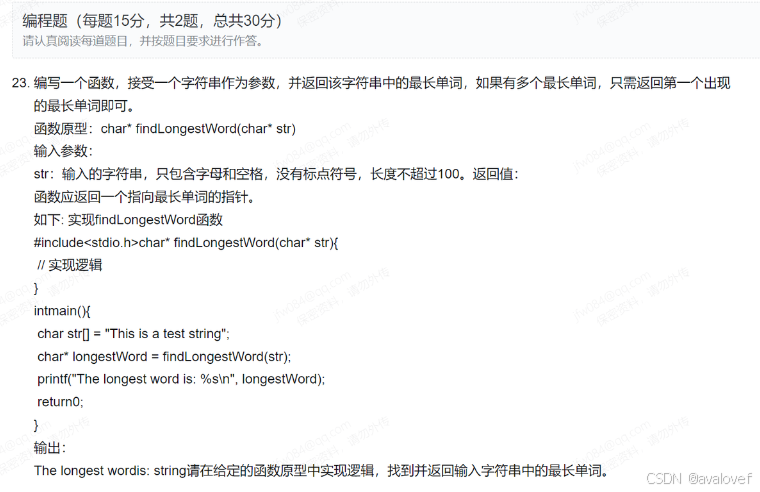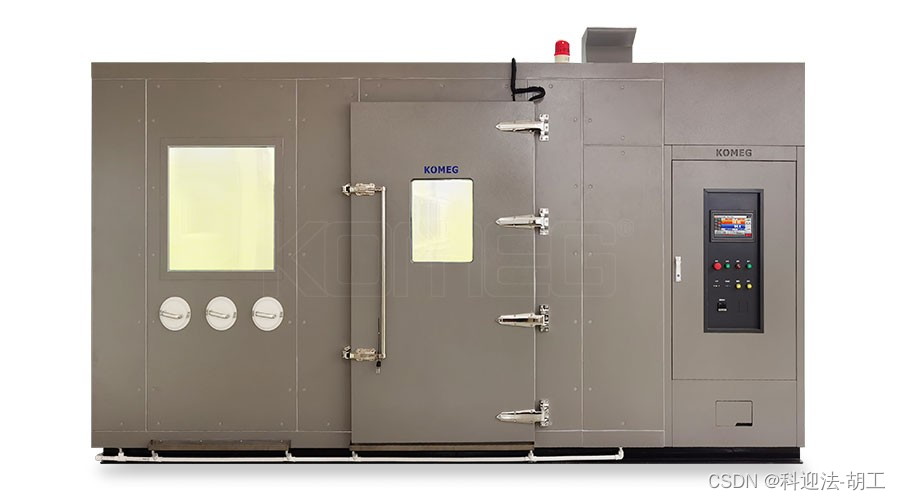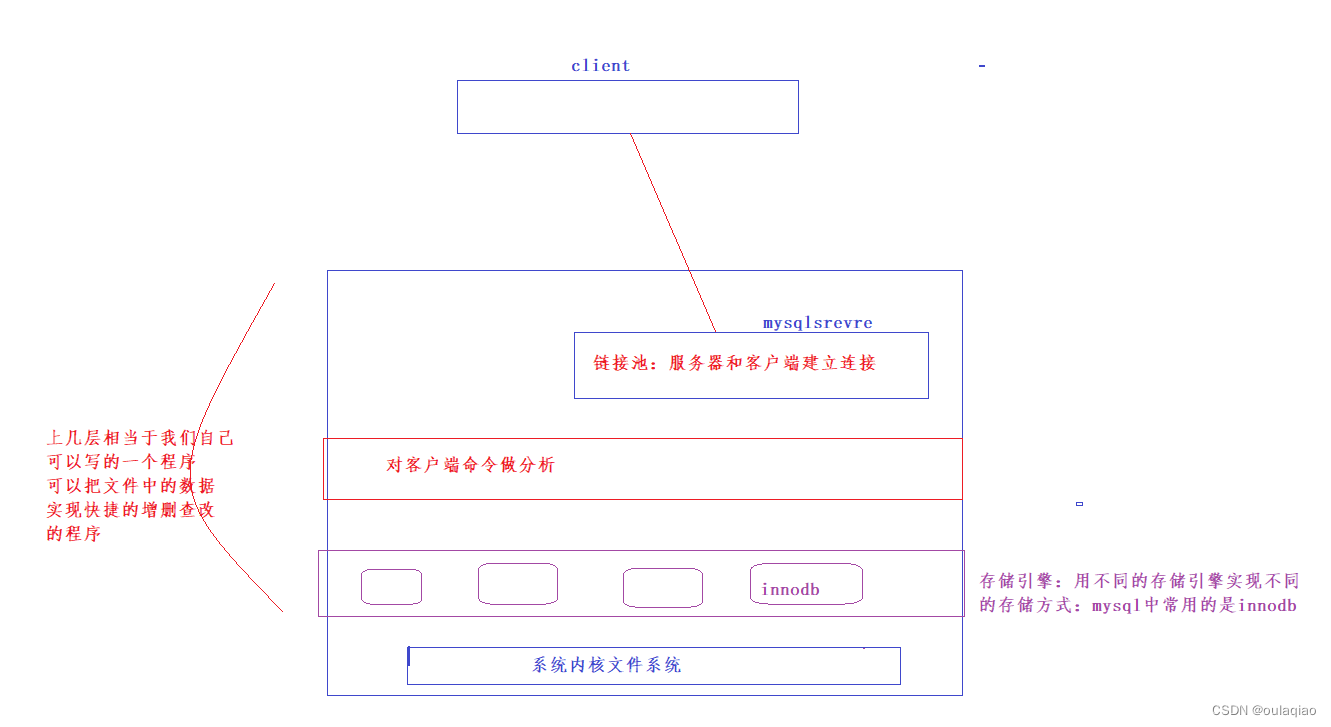void point ( int * p) { * p = p[ 2 ] ; } ;
int main ( ) {
int c[ ] = { 1 , 2 , 3 , 4 , 5 } , * p = c;
point ( p+ 1 ) ;
for ( ; p < c+ 5 ; )
{
printf ( "%d" , * p++ ) ;
}
return 0 ;
}
# include <stdio.h> # include <string.h> char * findLongestWord ( char * str) ;
int main ( ) {
char * str = "This is a test string" ;
char * longestWord = findLongestWord ( str) ;
if ( longestWord != NULL ) {
printf ( "The longest word is: %s\n" , longestWord) ;
} else {
printf ( "No words found in the string.\n" ) ;
}
return 0 ;
}
char * findLongestWord ( char * str) {
if ( str == NULL ) return NULL ;
char * token;
char * tokens[ 100 ] ;
int i = 0 ;
char delimiters[ ] = " " ;
char * strCopy = strdup ( str) ;
token = strtok ( strCopy, delimiters) ;
while ( token != NULL ) {
tokens[ i++ ] = token;
token = strtok ( NULL , delimiters) ;
}
int max = - 1 ;
char * longestWord = NULL ;
for ( int j = 0 ; j < i; j++ ) {
int len_tmp = strlen ( tokens[ j] ) ;
if ( len_tmp> max) {
max = len_tmp;
longestWord = tokens[ j] ;
}
}
free ( strCopy) ;
return longestWord;
}
# include <stdio.h> # include <stdlib.h> # include <string.h> int longestlen ( char * p)
{
int hash[ 256 ] ;
int len = 0 ;
memset ( hash, 0 , sizeof ( hash) ) ;
while ( * p && ! hash[ * p] )
{
hash[ * p] = 1 ;
++ len;
++ p;
}
return len;
}
int max_unique_substring4 ( char * str)
{
int maxlen = - 1 ;
int begin = 0 ;
char * a[ 99999 ] ;
int n = 0 ;
while ( * str != '\0' )
{
a[ n++ ] = str++ ;
}
for ( int i= 0 ; i< n; i++ )
{
int temlen = longestlen ( a[ i] ) ;
if ( temlen > maxlen)
{
maxlen = temlen;
begin = i;
}
}
printf ( "%.*s\n" , maxlen, a[ begin] ) ;
return maxlen;
}
int main ( ) {
char * test_str = "abcabcbb" ;
printf ( "Length of the longest substring without repeating characters: %s\n" , max_unique_substring4 ( test_str) ) ;
return 0 ;
}
# include <stdio.h> # include <stdlib.h> # include <stdint.h> # include <string.h> typedef struct list_node_t {
struct list_node_t * p_before;
struct list_node_t * p_next;
void * p_data;
uint32_t data_size;
} list_node_t ;
int insert_data_to_list ( void * p_list_head, const void * data, uint32_t data_size) {
if ( ! p_list_head || ! data) {
return - 2 ;
}
list_node_t * new_node = ( list_node_t * ) malloc ( sizeof ( list_node_t ) ) ;
if ( ! new_node) {
return - 1 ;
}
new_node-> p_data = malloc ( data_size) ;
if ( ! new_node-> p_data) {
free ( new_node) ;
return - 1 ;
}
memcpy ( new_node-> p_data, data, data_size) ;
new_node-> data_size = data_size;
new_node-> p_before = NULL ;
new_node-> p_next = NULL ;
list_node_t * current = ( list_node_t * ) p_list_head;
while ( current-> p_next) {
current = current-> p_next;
}
current-> p_next = new_node;
new_node-> p_before = current;
return 0 ;
}
int delete_list_node ( void * p_node) {
if ( ! p_node) {
return - 2 ;
}
list_node_t * node = ( list_node_t * ) p_node;
if ( node-> p_before) {
node-> p_before-> p_next = node-> p_next;
}
if ( node-> p_next) {
node-> p_next-> p_before = node-> p_before;
}
free ( node-> p_data) ;
free ( node) ;
return 0 ;
}
int main ( ) {
list_node_t head = { NULL , NULL , NULL , 0 } ;
int data1 = 100 ;
int data2 = 20 ;
insert_data_to_list ( & head, & data1, sizeof ( data1) ) ;
insert_data_to_list ( & head, & data2, sizeof ( data2) ) ;
list_node_t * current = head. p_next;
while ( current) {
printf ( "%d\n" , * ( int * ) current-> p_data) ;
current = current-> p_next;
}
current = head. p_next;
while ( current) {
list_node_t * next = current-> p_next;
delete_list_node ( current) ;
current = next;
}
return 0 ;
}
# include <stdio.h> # include <stdlib.h> # include <stdint.h> # include <string.h> typedef struct list_node_t {
struct list_node_t * p_before;
struct list_node_t * p_next;
void * p_data;
uint32_t data_size;
} list_node_t ;
int insert_data_to_list ( void * p_list_head, const void * data, uint32_t data_size) {
if ( ! p_list_head || ! data) {
return - 2 ;
}
list_node_t * new_node = ( list_node_t * ) malloc ( sizeof ( list_node_t ) ) ;
if ( ! new_node) {
return - 1 ;
}
new_node-> p_data = malloc ( data_size) ;
if ( ! new_node-> p_data) {
free ( new_node) ;
return - 1 ;
}
memcpy ( new_node-> p_data, data, data_size) ;
new_node-> data_size = data_size;
new_node-> p_before = NULL ;
new_node-> p_next = NULL ;
list_node_t * current = ( list_node_t * ) p_list_head;
while ( current-> p_next) {
current = current-> p_next;
}
current-> p_next = new_node;
new_node-> p_before = current;
return 0 ;
}
int delete_list_node ( void * p_node) {
if ( ! p_node) {
return - 2 ;
}
list_node_t * node = ( list_node_t * ) p_node;
if ( node-> p_before) {
node-> p_before-> p_next = node-> p_next;
}
if ( node-> p_next) {
node-> p_next-> p_before = node-> p_before;
}
free ( node-> p_data) ;
free ( node) ;
return 0 ;
}
int main ( ) {
list_node_t head = { NULL , NULL , NULL , 0 } ;
int data1 = 100 ;
int data2 = 20 ;
insert_data_to_list ( & head, & data1, sizeof ( data1) ) ;
insert_data_to_list ( & head, & data2, sizeof ( data2) ) ;
list_node_t * current = head. p_next;
while ( current) {
printf ( "%d\n" , * ( int * ) current-> p_data) ;
current = current-> p_next;
}
current = head. p_next;
while ( current) {
list_node_t * next = current-> p_next;
delete_list_node ( current) ;
current = next;
}
return 0 ;
}




















